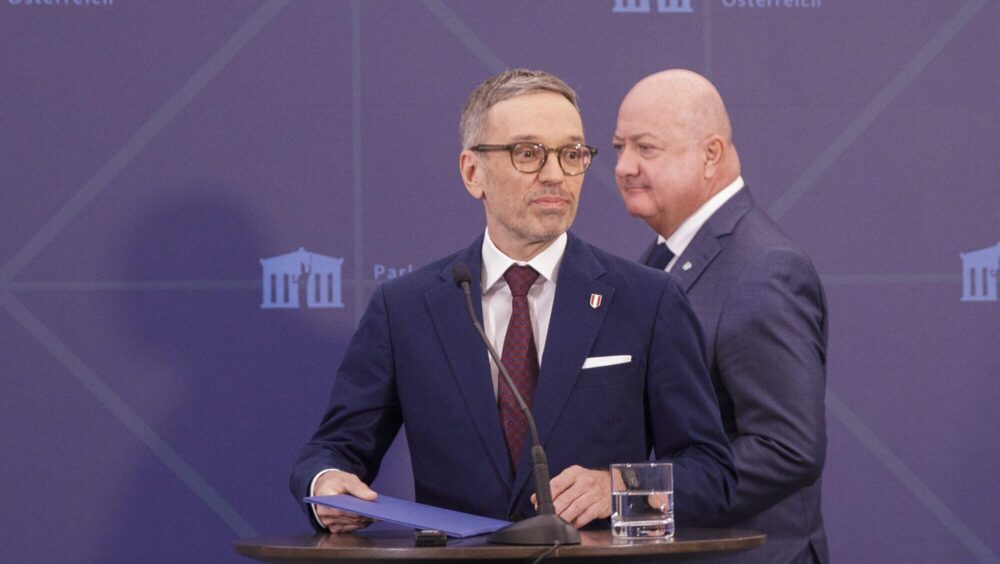
The leader of the Freedom Party (FPÖ) Herbert Kickl (L) and the Austrian People’s Party (ÖVP)
The two parties working to form a coalition government in Austria have agreed on a tough new set of rules to tackle illegal immigration and integrate migrants into society.
The right-wing Freedom Party (FPÖ) and the centre-right People’s Party (ÖVP) visibly want to steer Austria in a much more conservative direction, made evident by their plans on the topic of migration.
According to Austrian media outlet Exxpress, the parties have already reached a consensus regarding the implementation of mandatory German language courses in schools.
As we recently reported, almost half of first-graders in public elementary schools in Vienna lack the necessary German language skills to follow the lessons. 61% of the children who struggle with German were born in Austria—and 24% have Austrian citizenship—meaning they were not hindered by having lived abroad for many years. The People’s Party has suggested that 3-year-olds should undergo a language test before starting school.
The new government also wants to ban headscarves for female teachers and outlaw political Islam.
The FPÖ has repeatedly called for a ban on political Islam and organisations such as the Muslim Brotherhood, which have exerted considerable political and cultural influence on Austria’s Muslim communities through Salafist preachers in mosques, as well as cultural centres.
Following the thwarted terrorist attack on a Taylor Swift concert in Vienna last year, the ÖVP also set its sights on associations “that seriously contradict the values and basic principles of a European democratic state.”
Stricter regulations concerning asylum and migration are also on the agenda. The coalition intends to impose more stringent requirements for obtaining Austrian citizenship, making the naturalisation process significantly more challenging. The Freedom Party’s manifesto states that “only assimilated” people should receive citizenship.
The new government aims to adopt a more assertive stance on deportations, particularly speeding up repatriations to Afghanistan and Syria. This approach represents a shift towards a more rigorous policy compared to that of the preceding government.
Another proposal is the intended reduction of the age of criminal responsibility from 14 to 12 years.
According to Austrian media reports, the new government could be announced as early as the end of this week. The two parties have allegedly come to an agreement on a range of issues, including the budget.
The fact that the centre-right has broken ranks with the other mainstream parties and torn down the cordon sanitaire surrounding the FPÖ is a sign that European politics is shifting to the right, and that establishment parties can no longer ignore millions of voters—as witnessed in Germany last week.
The FPÖ won the national elections in September and is by far the most popular party in Austria, yet the ÖVP and the leftist political forces rejected cooperating with it. However, the collapse of three-way coalition talks between the ÖVP, the Social Democrats, and the liberal NEOS party faltered, leaving the People’s Party no other choice but to ally with the FPÖ.
FPÖ leader Herbert Kickl said last week that illegal migration should no longer be managed, but consistently combated and stopped. He said his government intends to hand out benefits in kind to migrants instead of cash, and deportations will have a priority over new asylum applications.
The FPÖ campaigned on the concept of ‘Fortress Austria,’ meaning the party wants to suspend asylum applications, put in place a real border protection system, turn back illegal and undocumented migrants at the border, and deport failed asylum seekers.
